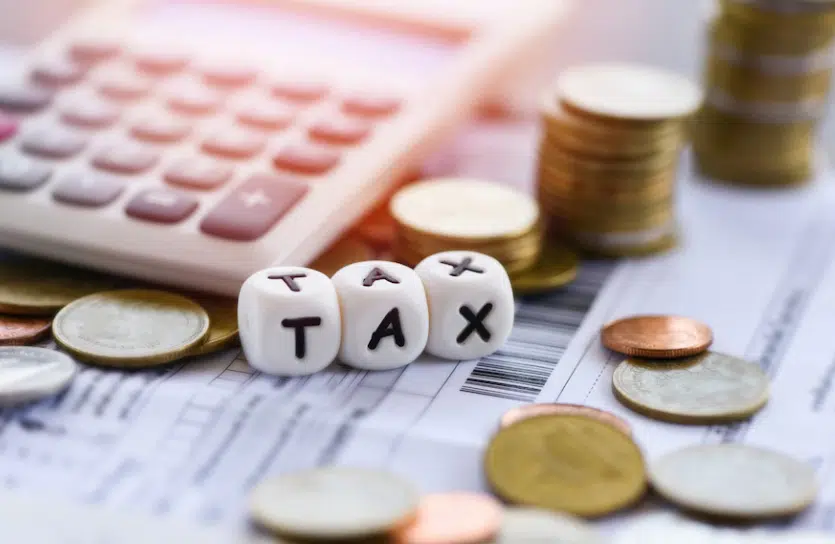
If you are heavily invested in cryptocurrency, you might also be aware that cryptocurrency can also be taxed like all products and services. The International Revenue Service (IRS) has vigorously been working on a crypto tax framework for individuals to comply with and file their tax returns accordingly. So yes, you do have to report your crypto on your taxes. If you fail to report your taxable cryptocurrency activity in your tax returns, you may be audited by the IRS, further leading to penalties or criminal charges; some may even call it tax evasion.
However, there are a few situations where you do not need to pay taxes on the cryptocurrency you own. Since cryptocurrency still has a long way to go, we wouldn’t be surprised if you weren’t aware of crypto related taxes. Here we will be giving you a brief overview of how your virtual currency can be taxed.
When Do I Report Cryptocurrency Trades on My Tax Returns?
The IRS has made it clear that virtual currency is to be treated as an investable asset in your tax files. They clarify by stating that virtual currency is to be treated as property, and therefore general tax principles are applied to all transactions using virtual currency. But as mentioned earlier, not all of your activity with crypto needs to be reported. We will go over some common cases and explain whether or not you should be reporting these trades on your tax returns or not.
- You purchase cryptocurrency using US dollars: If you happen to simply buy virtual currency through US dollars and then store your acquired cryptocurrency in your virtual wallet, you do not need to report this activity to the IRS based on your Form 1040 tax return.
- You traded cryptocurrency: If you instead used cryptocurrency to exchange for another cryptocurrency or again, exchanged them with US dollars, or used your cryptocurrency to trade for goods and services, you will need to report this activity. This is why it is generally recommended that you should be careful while trading; every transaction is a taxable event, so it’s best to limit the number of times you trade cryptocurrency online.
- You created or traded NFTs: NFTs are a form of digital assets that you can sell online on NFT marketplaces, so yes, they are also taxed. However, the IRS does not yet have dedicated NFT tax guidance. However, most collectible NFTs are immediately subjected to capital gain taxes like other cryptocurrencies since they are classified as “collectibles.”
How to Report Cryptocurrency Income?
Many people may exchange their services or goods for cryptocurrency instead of cash. In this case, you will have to record the value of the virtual currency in US dollars at the time you received it. The IRS describes it as including the “fair market value of the virtual currency, measured in US dollars, as for the date that the virtual currency was received.”
How Much Do I Have To Pay As Crypto Tax?
Now, let’s move on to the next important question, when must you pay taxes on cryptocurrency? Since the IRS regards virtual currencies as property, their taxable value is dependent on your capital gains or losses – how much value your property lost or gained over a period of time.
For instance, if you have a virtual currency that you bought for nearly $10 but sold for $50, you will end up with a capital gain of $40. But in the scenario that you sell your virtual currency for less than its initial value, you end up with a capital loss. (If your total losses exceed your capital gains, you can remove up to $3000 from your taxable income).
Once you have a capital gain, you must also consider the time frame you held onto your virtual currency for. This is because your capital gain is eventually taxable at either a short-term or a long-term rate.
If you held onto your virtual currency for over a year, it would be regarded as a long-term capital gain, but it would be considered a short-term gain if you sold it within a year. If you have a short-term capital gain, your tax rate will range from 10%-37%. Similarly, if you have a long-term capital gain, your tax rate will range from 0-to 20%, depending on your total income.
How Do I Minimize Cryptocurrency Taxes?
If you are an active cryptocurrency user, you might not be glad to know that nearly all your cryptocurrency transactions are taxed. But all’s not lost just yet. There are ways you can minimize the cryptocurrency tax you must pay on your virtual currency assets.
§ Hold Onto Your Virtual Currency:
The easiest way to minimize the crypto tax charged on your cryptocurrency is by simply holding onto your virtual currency for at least a year before you sell. This is because the tax rate for long gains is much lesser than for short-term gains. In this way, you can go from paying nearly 37% in taxes to just around 20%!
§ Offset Your Gains With Losses:
The next way is to claim any losses you had on other investments over the same year. For instance, if you made a profit of $10 by selling one virtual currency coin but happened to lose the same amount of $10 while selling another virtual currency coin at another time, you no longer have to pay any taxes.
Moreover, these losses need not be only when you sell or trade cryptocurrency; they can be for any investment across your portfolio. If your overall losses exceed your gains, you can deduct up to $3000 from your personal income taxes.
§ Claim Your Expenses For Mining:
This is the final way to reduce the amount of tax you may need to pay. Mining cryptocurrency can require several resources such as computing power, services, electricity, and internet services. As a tax filer, you can deduct the costs for these services against your income. However, it all depends on whether you categorize yourself as a business or a hobby.
Here you go; now you know all about cryptocurrency taxes, when it is applicable, and how you can minimize cryptocurrency tax.
Check More Of Our Content Down Below –






